In today’s world, where sustainability and ethical living are becoming increasingly important, the intersection of veganism and indigenous rights is a topic that deserves more attention. While veganism is often associated with dietary choices and animal welfare, its implications reach far beyond the plate. By understanding and embracing the connection between veganism and indigenous rights, we can work towards a more equitable and just world.
The Roots of Traditional Plant-Based Diets
Indigenous communities around the globe have a long history of plant-based diets that are deeply rooted in their cultural and spiritual practices. These traditional diets are often sustainable, relying on locally sourced, seasonal plants, and are designed to nourish both the body and the land. By returning to these age-old practices, indigenous communities can reclaim their food sovereignty and protect their cultural heritage.
Sustainable Practices and Environmental Stewardship
Many indigenous cultures have a profound respect for the environment, viewing themselves as stewards of the land rather than conquerors. This philosophy aligns closely with the principles of veganism, which advocates for minimizing harm to animals and the environment. By adopting sustainable practices such as permaculture, agroforestry, and seed saving, indigenous communities can preserve biodiversity and promote ecological balance.
The Impact of Industrial Agriculture on Indigenous Lands
The industrialization of agriculture has had devastating effects on indigenous lands and communities. Large-scale farming operations often lead to deforestation, soil degradation, and water pollution, threatening the livelihoods of those who depend on the land. By advocating for veganism and supporting indigenous-led conservation efforts, we can help mitigate these impacts and promote a more sustainable food system.
Food Sovereignty and Self-Determination
Food sovereignty is the right of people to define their own food systems and have control over the way food is produced, distributed, and consumed. For indigenous communities, this means having the autonomy to grow and harvest their traditional foods without interference from external forces. Veganism, with its emphasis on ethical and sustainable food choices, can support the fight for food sovereignty by promoting plant-based diets that are compatible with indigenous knowledge and practices.
Preserving Cultural Heritage Through Veganism
The connection between food and culture is undeniable. For many indigenous communities, traditional plant-based diets are not just a means of sustenance, but a way of life that is intertwined with their identity and heritage. By honoring and preserving these diets, we can help safeguard the cultural heritage of indigenous peoples and ensure that their knowledge and practices are passed down to future generations.
Taking Action: How You Can Support Indigenous Rights and Veganism
Educate Yourself:
Learn about the history and traditions of indigenous communities and the challenges they face. Read books, watch documentaries, and engage with indigenous voices and perspectives.
Support Indigenous-Led Organizations:
Donate to or volunteer with organizations that work to protect indigenous rights and promote sustainable practices.
Choose Ethical and Sustainable Products:
When shopping for food and other products, prioritize those that are produced in a way that respects indigenous rights and the environment.
Advocate for Policy Change:
Use your voice to support policies that protect indigenous lands and promote sustainable agriculture. Write to your representatives and participate in advocacy campaigns.
Spread Awareness:
Share information about the connection between veganism and indigenous rights with your friends, family, and social media followers. Encourage others to join the movement for a more equitable and just world.
By exploring the connection between veganism and indigenous rights, we can deepen our understanding of both movements and work together to create a more sustainable and ethical future. Let’s take action and make a difference today.










